2019
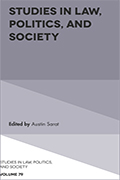
Balint, Jennifer. “Prosecuting and partnering for social change: Law, social movements and Australia’s mandatory detention for refugees and asylum seekers,” in Sarat, Austin (ed.,). Studies in Law, Politics and Society Vol. 79. Emerald Group Publishing Limited, 2019.
This special issue of Studies in Law, Politics and Society contains two sections. In the first, ‘Religious Inspirations and Legal Responses’, contributors examine the interaction between law and religion. The second section, ‘Law and Social Change: Old Questions, New Answers’, examines the ways in which the law simultaneously enhances and inhibits projects of social change. More information…
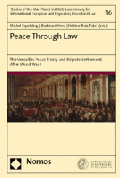
Balint, Jennifer; Haslem, Neal and Haydon, Kirsten. “The Work of Peace: World War One, Justice and Translation Through Art,” in Erpelding, Michel; Hess, Burkhard and Fabri, Hélène Ruiz (eds.,). Peace Through Law: The Versailles Peace Treaty and Dispute Settlement After World War I. Nomos Verlagsgesellschaft mbH und Co. KG, 2019.
With the benefit of hindsight, presenting the Treaty of Versailles as an example of ‘peace through law’ might seem like a provocation… Relying both on legal and on historical research, this book provides a global overview of how the Paris peace treaties impacted dispute resolution in the interwar period, both substantially and procedurally. The book’s accounts of several all-but-forgotten international tribunals and their case law include references to archival records and photographic illustrations. More information…
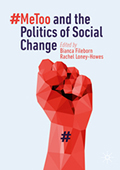
Fileborn, Bianca and Loney-Howes, Rachel (eds.,). #MeToo and the politics of social change. Palgrave Macmillan, 2019.
#MeToo has sparked a global re-emergence of sexual violence activism and politics. This edited collection uses the #MeToo movement as a starting point for interrogating contemporary debates in anti-sexual violence activism and justice-seeking. It draws together 19 accessible chapters from academics, practitioners, and sexual violence activists across the globe to provide diverse, critical, and nuanced perspectives on the broader implications of the movement. More information...
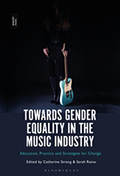
Fileborn, Bianca; Wadds, Phillip and Barnes, Ash. “Setting the stage for sexual assault: the dynamics of gender, culture, space and sexual violence at live music venues,” in Strong, Catherine and Raine, Sarah (eds.,). Towards gender equality in the music industry: education, practice and strategies for change. Bloomsbury Academic, 2019.
Gender inequality is universally understood to be a continued problem in the music industry. This volume presents research that uses an industry-based approach to examine why this gender imbalance has proven so hard to shift, and explores strategies that are being adopted to try and bring about meaningful change in terms of women and gender diverse people establishing ongoing careers in music. More information...
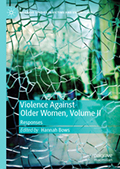
Fileborn, Bianca and Barrett, C. “Sexual violence against older women: documenting the practices of aged care service providers,” in Bows, Hannah (ed.). Violence Against Older Women Volume II: Responses. Palgrave Macmillan, 2019.
This book brings together international research from scholars and activists on the forms of violence that older women experience into a unique, comprehensive two-volume set. This volume is concerned with understanding the consequences and impacts of violence against older women. More information...
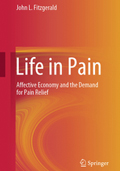
Fitzgerald, John. Life in pain: Affective economy and the demand for pain relief. Springer, 2019.
This book explores pain in a number of ways. It proposes a novel theory that approaches pain as a commodity within an affective economy Offers a new framework for framing chronic pain management policy Appraises the growing medicinal cannabis industry from an international criminological perspective. At the heart of the book is an extension of Melzack’s neuromatrix theory of pain into the social, cultural, and economic fields. Specific assemblages involving varied institutions, flows of capital, encounters, and social and economic structures provide a framework for the formation of pain, its perception, experience, meaning, and cultural production. More information…